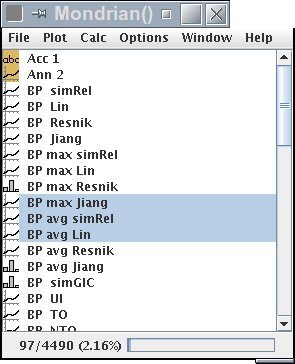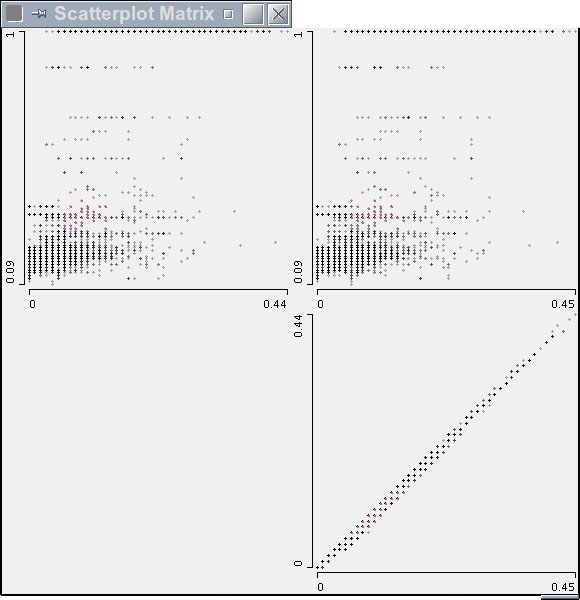
informatik



Results can be visualized using two different tools, Medusa and Mondrian. Medusa allows for exploring the network of annotation classes.
Mondrian provides the possibility to create different plots from the scores in the result set.
Medusa is a network visualization programm developed in the lab of Peer Bork at EMBL Heidelberg. The original program,
the documentation, and a tutorial can be found here. It is distributed under the GNU General Public License (GPL).

On the FunSimMat web site, Medusa is deployed via Java Web Start. In order to run it, you need to install Java 5 or higher.
Java can be downloaded here for free. After clicking one of the Medusa links on a result page, a JNLP file is downloaded that
has to be opened with the javaws program included in the Java installation. Medusa automatically loads the network and
provides an initial layout. The Layout menu provides different options for calculating a new layout. Additionally, it is possible
to export the network in a variety of file formats.
The modified source code can be downloaded here.
Mondrian is a statistical data-visualization tool developed in the department of Computer Oriented Statistics and Data Analysis
headed by Prof. Unwin at the University of Augsburg. The orignial program with a detailed description of all available plots and
options can be found here. It is distributed under the GNU General Public License (GPL).


On the FunSimMat web site, Mondrian is deployed via Java Web Start. In order to run it, you need to install Java 5 or higher.
Java can be downloaded here for free. The dataset is automatically loaded after starting Mondrian. The main window shows all
variables and allows to create a new plot of the selected scores via the menu. A plot can be saved in different image formats
from the pop up menu in the plot window.
The modified source code can be downloaded here. Support for saving plots in vector formats
is provided by the FreeHEP
project, which is distributed under the GNU Lesser General Public License (LGPL).